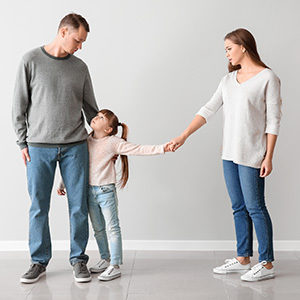
Legal custody refers to legal authority and responsibility, such as who makes legal, medical, and educational decisions for a child. Physical custody refers to residence or time spent with the parent in question.
Both types of custody can be shared between the two parents, but it depends on the individual case and the judge’s ruling. Having shared physical custody does not necessarily mean time will be spent perfectly equally between the two parents
How Is Custody Determined Under Georgia Law?
 Georgia law permits a considerable amount of liberty for a judge when determining child custody. There are several commonly used criteria, although a judge can consider any other factor at their discretion, so long as they deem it relevant to the case. Among the common criteria include:
Georgia law permits a considerable amount of liberty for a judge when determining child custody. There are several commonly used criteria, although a judge can consider any other factor at their discretion, so long as they deem it relevant to the case. Among the common criteria include:
- The stability of each party;
- If one party frequently moves or has demonstrated an inability or unwillingness to hold down a job and the other party hasn’t, the party that has demonstrated stability and maintained regular employment will understandably be looked on more favorably.
- The concern a party visibly demonstrates toward the well-being of the child;
- If one parent has neglected something like the child’s education, that would work against them.
- The type of relationship the child shares with the parent;
- If a parent has not spent much time with the child most of their life and suddenly changes their behavior upon the divorce being filed, they would be less likely to get custody than the parent who has been there all along, seen the child regularly, and knows the child’s needs.
It should be noted that in Georgia if you are declared the father in a child support case but are not married to the mother, you are not the legal father. The only exception is if you married the mother and recognized the child as your child.
If you did not marry the mother, then the child is considered legally illegitimate. You have to legitimize the child in order to have legal rights.
Is There An Age Where The Child Has Input On Who They Will Live With?
In Georgia, children aged 14 and above have the right to select the parent they wish to live with. While a judge can override this choice, there’s a presumption in favor of the child’s wishes. For children between the ages of 11 and 14, the judge considers the child’s desires and educational needs when determining custody.
Message Nancy on our Facebook Page or email her at nancyburnett@live.com.
Call For Consultation
(706) 280-7152